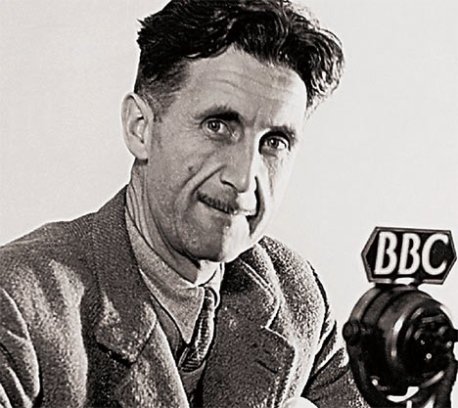” Journalism is printing what someone else does not want printed : everything else is public relations.” – George Orwell
by tybmmjourno
Eric Blair, better known by his pen name George Orwell, was an English author and journalist well known for the works Nineteen Eighty-Four and Animal Farm. Eric Blair was born on June 25, 1903, in Motihari, Bihar, in India, during the period when India was part of the British Empire under the British Raj. There Blair’s father, Richard Walmesley Blair, worked for the opium department of the Civil Service. His mother, Ida Mabel Blair, brought him to the United Kingdom at the age of one. He said, ” Journalism is printing what someone else does not want printed : everything else is public relations.”
He was a writer for many other publications. Orwell was almost as promiscuous as he was prodigious in his freelance journalism. It’s also fair to say that his output for The Observer, while often first-rate, features few of the works on which his formidable reputation as a non-fiction writer rests. His celebrated ‘As I Please’ column, for example, was written for Tribune. His gentle but sharply observed meditations on English life – how to brew the perfect cup of tea and what constitutes the ideal pub – were published by the Evening Standard. And the groundbreaking forays into popular culture – his examinations of the British seaside postcard and boys’ comics – and the revered polemical essays appeared in periodicals such as Horizon and Polemic.
Even so, the mark he left on this newspaper was arguably far more profound than his legacy elsewhere in Fleet and Grub streets, and not just because Horizon and Polemic quickly folded. What was different about The Observer is that Orwell’s theory of journalistic writing – succinct, provocative, transparent – was designated the house style to which all the newspaper’s writers were expected to aspire during its ‘golden age’ of the Fifties.
As early as 1938, The Observer had called Orwell ‘a great writer’ in its review of Homage to Catalonia, his account of his experience fighting for the Republicans in the Spanish civil war. This was by no means a universally shared judgment, as was shown by the fact that the book – now recognised as a genre-defining classic – sold a paltry 700 copies.
It was not until late 1941, though, that Orwell was asked to write for The Observer. At the time, the paper was edited by JL Garvin, a staunch Churchillian Tory, but it was owned by the Astor family. And it was Lord Astor’s son, David Astor who first approached Orwell, following a recommendation by Cyril Connolly. Astor knew Orwell only by his patriotic call to arms, The Lion and The Unicorn, but already admired his clarity of thought.
In October 1949, shortly before his death, he married Sonia Brownell. Orwell died in London at the age of 46 from tuberculosis, which he had probably contracted during the period described in Down and Out in Paris and London. He was in and out of hospitals for the last three years of his life. Having requested burial in accordance with the Anglican rite, he was interred in All Saints’ Churchyard, Sutton Courtenay, Oxfordshire with the simple epitaph: Here lies Eric Arthur Blair, born June 25th, 1903, died January 21st, 1950.

